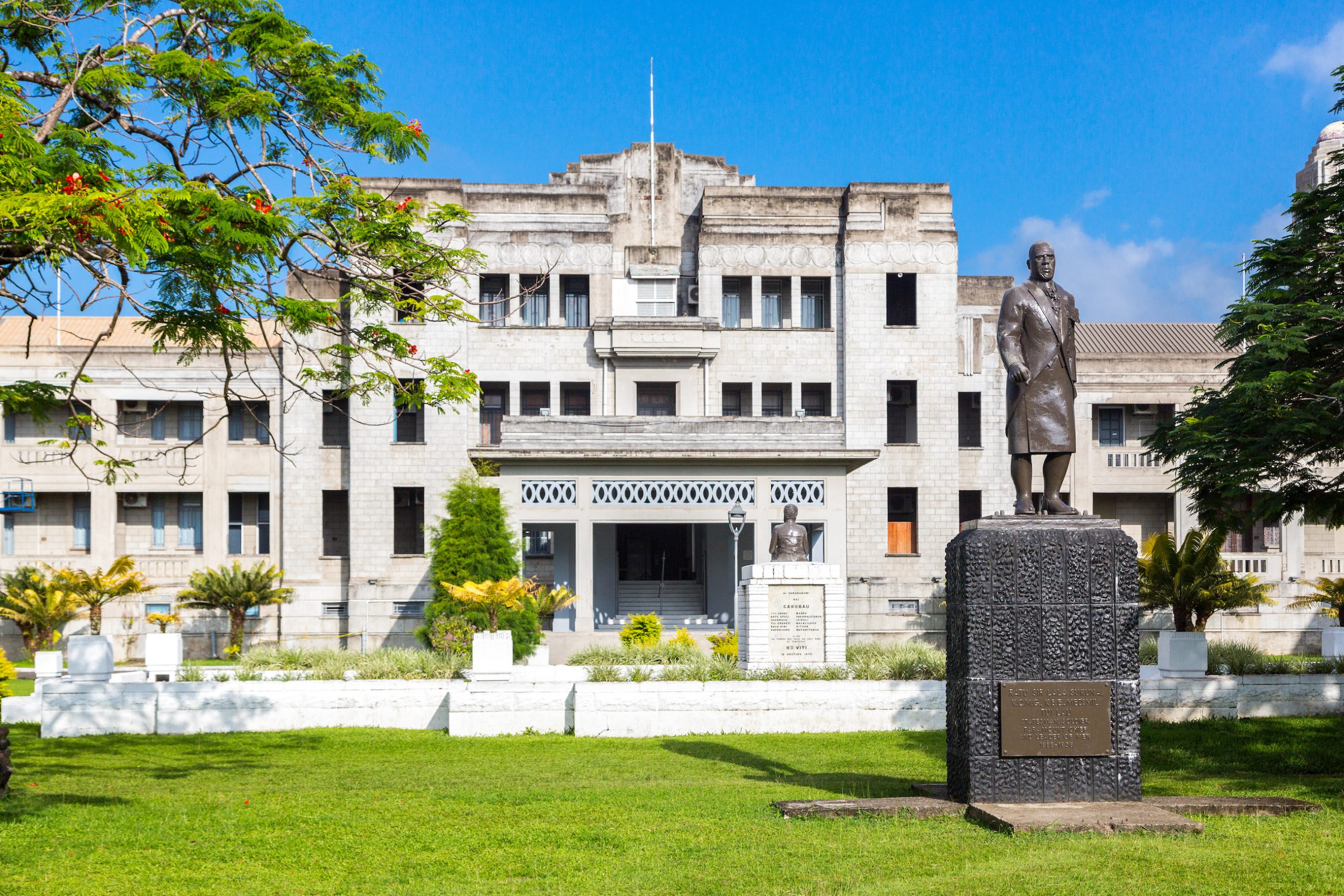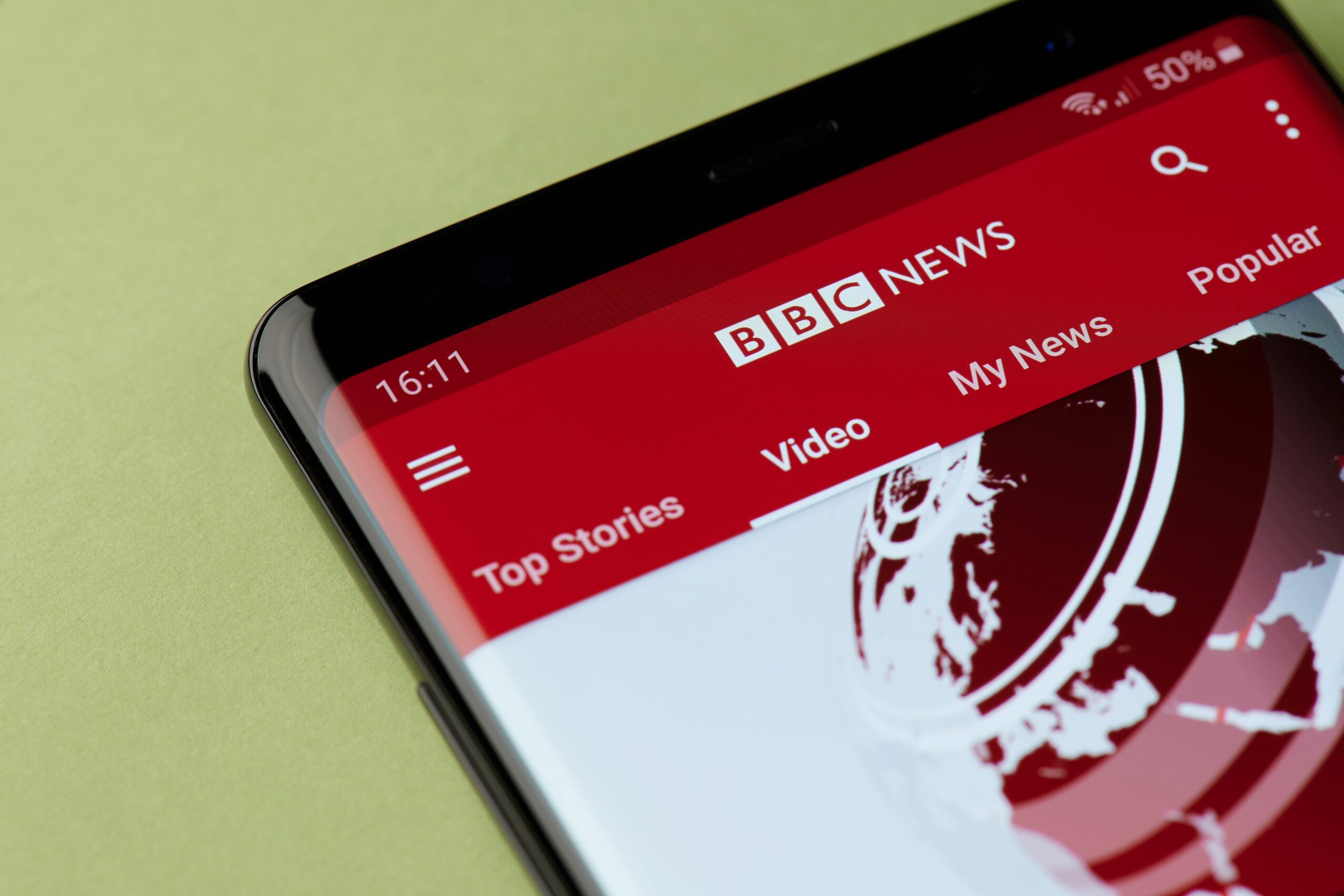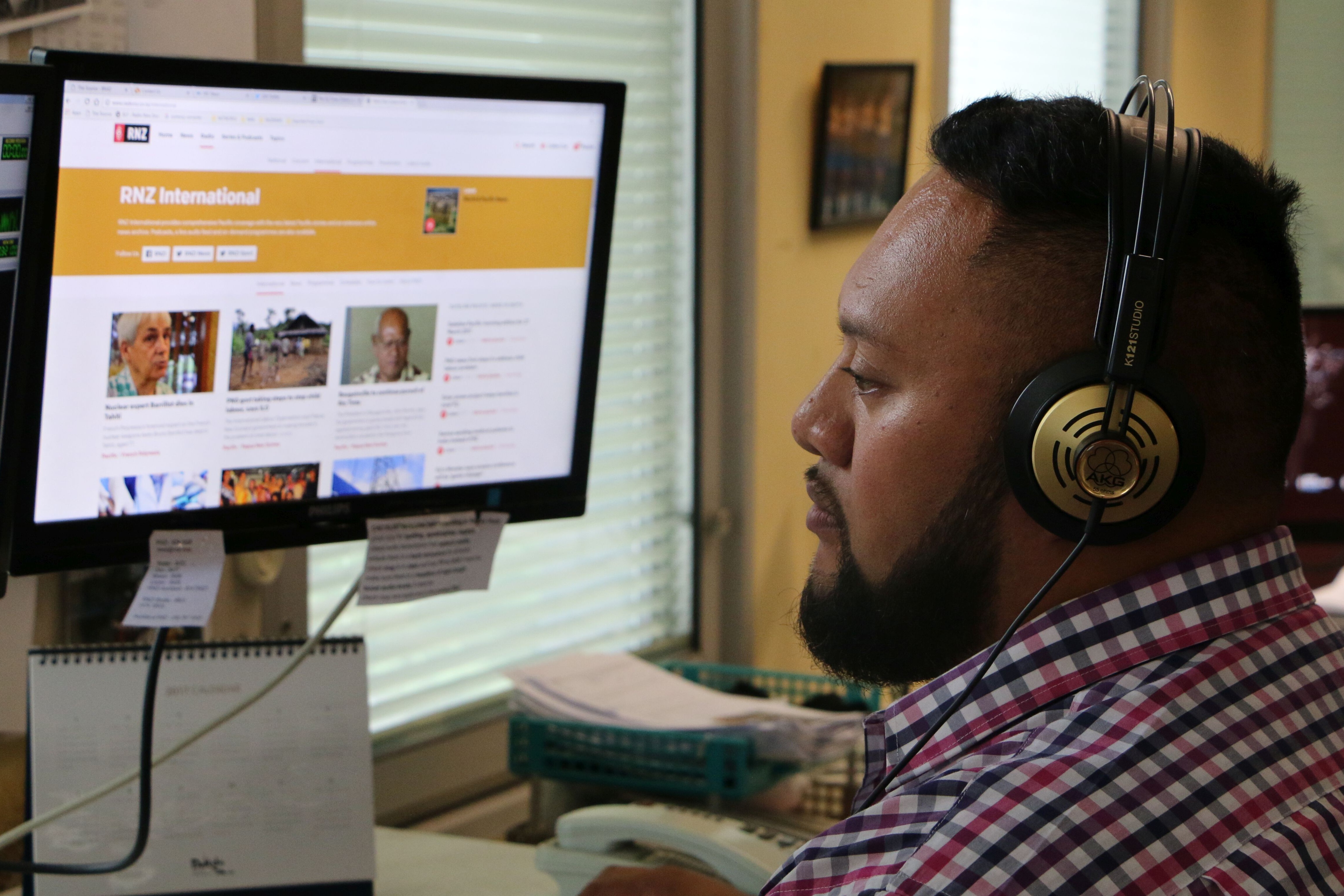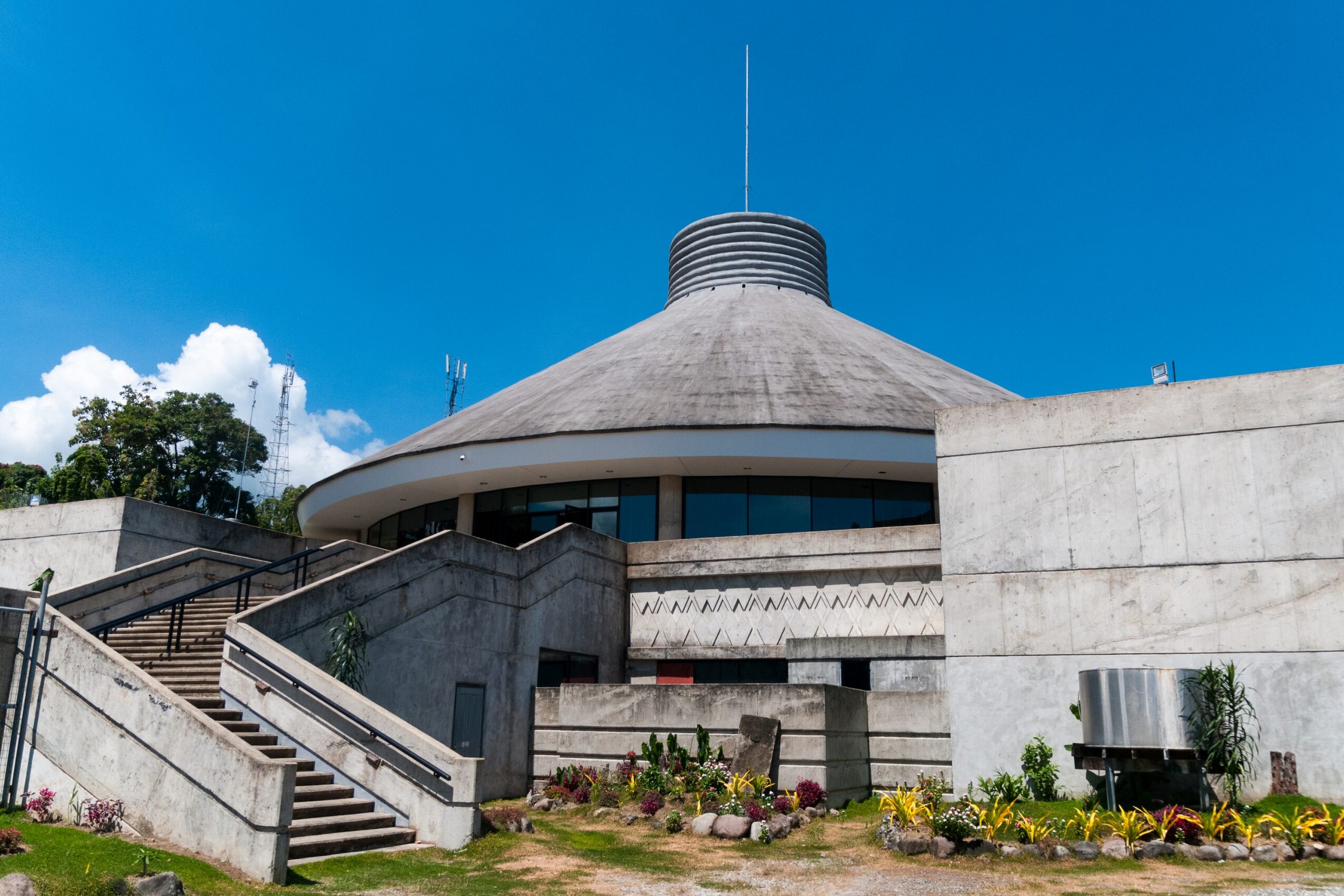“Another good sign” for media freedom in Fiji
30th March 2023
PMA speaks to a Pacific media academic to ascertain the state of affairs for media freedom in the country, after a new government entered office in December.

2023 has, so far, been largely positive for media freedom in Fiji. PMA previously reported on the changes underway in the country’s media landscape, which saw a change of personnel at the national broadcaster, the Fijian Broadcasting Corporation (FBC).
The new government, which came into power in December 2022, had also pledged to repeal a restrictive media law brought in under the previous Prime Minister, Frank Bainimarama. The government has continued to fulfil this promise, with a repeal bill approved by Cabinet on Wednesday 29 March. It will now go to parliament for approval. While some scepticism still remains, these continue to be encouraging developments.
To ascertain what these changes mean for the media in Fiji, PMA’s Editorial Manager, Harry Lock, spoke with Dr Shailendra Singh, Associate Professor of Pacific Journalism at the University of the South Pacific.
Harry Lock: How would you describe FBC under PM Bainimarama? Was it controlled by the state?
Dr Shailendra Singh: Like most national broadcasters in the Pacific, there would be an element of government control. This is simply because the government is the state broadcaster’s major ‘breadwinner’, so to speak. So Pacific governments feel a sense of ‘entitlement’ and ‘ownership’ of the state broadcaster and like to boss it around, with an expectation to report positively, rather than critically, as a private news media organisation would. This is usually outlined in the charter governing state broadcasters. Usually, they are expected to support government initiatives even though some of them have been corporatised and are supposed to be independent.
In [the] case of government funding, the FBC has been allocated over $80 million in the last decade in various forms, including what FBC describes as public service broadcasting fees. That’s a huge amount of money by Fiji standards. So you can bet there has been some government influence. The public seems to think so, and it was evident in research published on FBC’s coverage of Fiji’s 2018 general elections. FBC’s portrayal of the ruling party was overwhelmingly positive.
“There needs to be a critical analysis of the FBC charter with regards to its role in nation-building and relationship with its breadwinner, the government.” – Dr. Shailendra Singh
HL: What is your sense of the changes at FBC – is it a positive move for the independence of the broadcaster?
SS: Change can be good, bad, or uneventful. In FBC’s case it’s too early to tell. With a new board in place people are hopeful, although it has not been an encouraging start. Firstly, the board was appointed before the expressions of interest had expired. So why bother with the EOI in the first place. Then there was the board decision to undertake what is seen as an unnecessary and potentially costly rebranding exercise. And FBC News was forced to retract or change a story, reportedly under pressure from the government or the board. But we remain hopeful!
Listen toour podcast
Uncovering and exploring the biggest
issues facing public media
HL: What else needs to happen to ensure FBC becomes a protected and independent public service broadcaster?
SS: FBC funding should not be cut drastically or abruptly as it is providing a valuable national service, and that comes at a cost, as we see, for example, with the BBC and ABC. What needs [to] be drastically and abruptly cut is wasteful expenditure, such as exorbitant salaries and purchase of [a] top of the range vehicle reportedly for the former CEO. The new board has wisely decided auction off the vehicle rather than keep it. There needs to be a critical analysis of the FBC charter with regards to its role in nation-building and relationship with its breadwinner, the government. FBC can’t get too cosy with the government, neither can it be too negative, or too cynical, because that’s not good either, not in a developing country and transitional democracy like Fiji, which is a fragile state, according to some definitions.
HL: How about media freedom more broadly? Do you have faith in the new government that positive changes will be made to create a more free and pluralistic media environment?
SS: No one should have too much faith or trust in any government. A healthy skepticism and a bit of hope at best. The new government has made promises to end persecution and uphold media rights. It helped them get elected. There is an expectation that this government will keep its word but we have to wait and see. [The] Government is replacing the Media Act which was often described as draconian. [It] kept its promise to repeal the original act in the first 100 [days] of its government. It made the draft act available a few days before the public consultations. There will be further consultations in the country, which is another good sign. Initially the focus of the draft act is to remove the restrictions and punitive measures in the original Media Act. This is a far cry from how the act was imposed in 2010 in the face strong opposition from the media sector, civil society and the public.
HL: How important is media freedom in Fiji for the rest of the Pacific region?
SS: As the biggest country in the region bar PNG, and the most [developed], Fiji is fairly influential in the Pacific. After Fiji implemented its Media Act in 2010, some other countries talked about introducing similar legislation. In fact, PNG introduced a draft media policy only this last month. So, in a way, the state of media freedom in Fiji can arguably affect other countries in the region.
Within the region
Across the rest of the Pacific, there have been some positive developments that will see audiences access quality public broadcasting content. The increased presence of the Australian Broadcasting Corporation (ABC) has seen new agreements signed between the Australian broadcaster and Timor-Leste’s RTTL and Solomon Islands’ SIBC. The agreements will see greater collaboration between the corporations, and media development support.
SIBC has also signed an agreement with New Zealand company, MMG, to build a TV station and become a fully-fledged public television broadcaster. For 70 years, SIBC has run a radio station and, while it has two digital channels, there has been no TV channel. It comes ahead of the Pacific Games being held later this year in Solomon Islands.
Related Posts
9th November 2022
The Trusted News Initiative creates Asia-Pacific network
Partners in the Trusted News Initiative…
25th August 2022
Public media expands reach and services for the Pacific
Public media organisations are…
5th August 2022
PMA: Solomon Islands government must respect broadcaster’s independence
The government has ordered Solomon…



